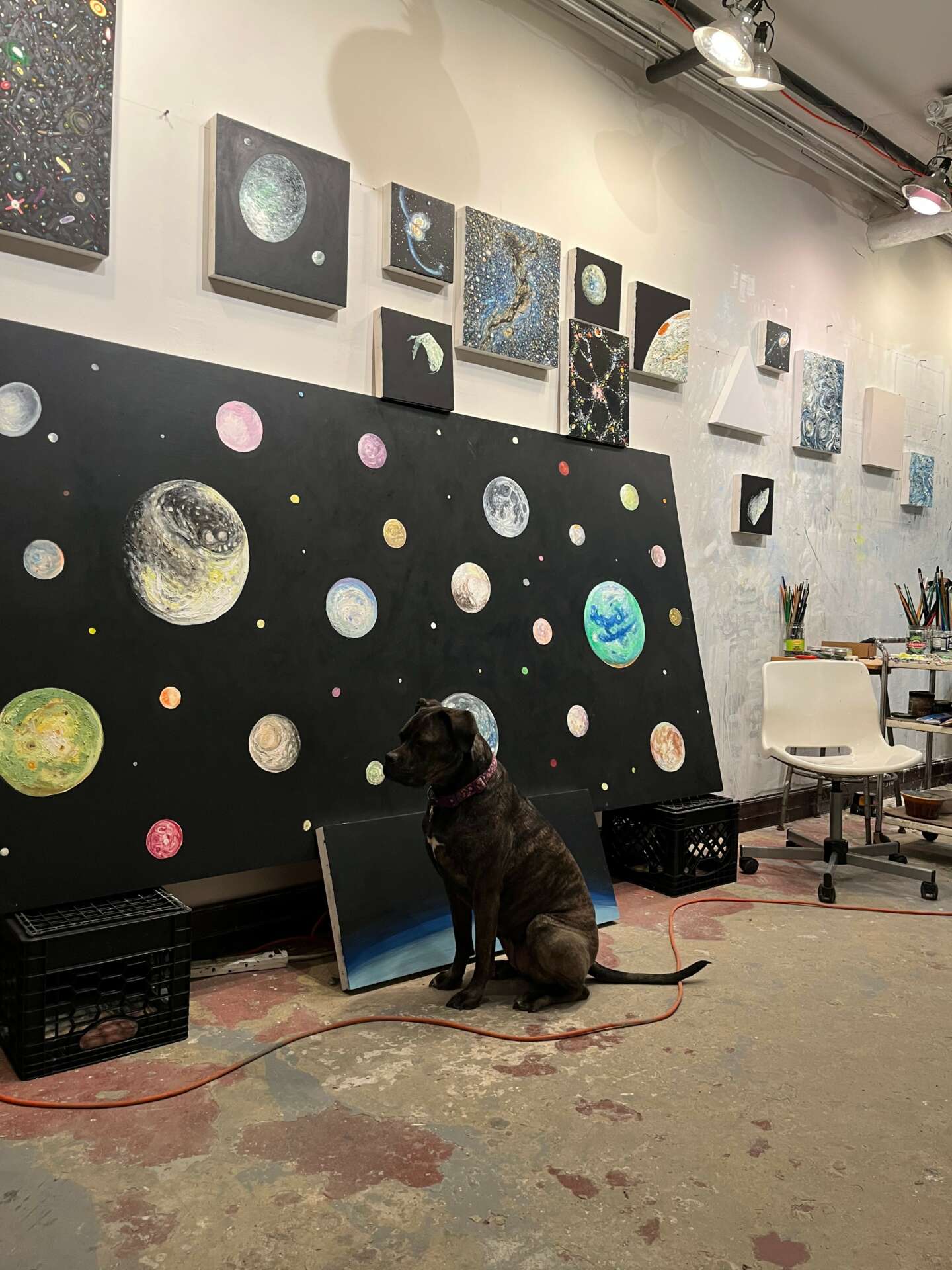We’re excited to introduce you to the always interesting and insightful Morgan Frew. We hope you’ll enjoy our conversation with Morgan below.
Hi Morgan , thanks for joining us today. When did you first know you wanted to pursue a creative/artistic path professionally?
I’ve always known that I had to do something creative with my life to be happy, but it took me a while to come to terms with being an artist myself. Both of my parents were artists. My mother was a painter and my father was a printmaker and art professor, so I grew up in an artistic community and household. My parents always encouraged and supported me to do anything creative or artistic. Because of the careers they chose, I knew how difficult it was to be a working artist from a very young age.
Early on in my academic career I pursued many different creative avenues. I tried acting and film for a while which wasn’t a good fit for me. There was too much collaboration and I quickly discovered that I wasn’t a theatre person. I then briefly switched to photography, which I enjoyed, but felt that there was too much process involved to get to the end product. I also tried metals/jewelry for a couple of semesters and felt the same about that artistic pursuit.
When I finally decided to take a beginning painting class (late in my undergrad career) I knew that painting was going to be it for me. I’d drawn and painted since childhood but approaching painting in an intellectual and academic environment was something that I immediately fell in love with. And it wasn’t just the studio practice that I loved, but the entire history of painting as well. Beginning with that painting class, I consciously decided that this was going to be what I will do for the rest of my life. I made that decision then, and I’ve never looked back.




Great, appreciate you sharing that with us. Before we ask you to share more of your insights, can you take a moment to introduce yourself and how you got to where you are today to our readers
I’m a working artist based in Chicago. Prior to my move here, I spent a little over a decade working in academia as a drawing and painting professor. I was fortunate enough to land a teaching gig right out of grad school and worked as an adjunct for a few years, teaching at large state universities and smaller private colleges. In 2016 I accepted a tenure track position at a small liberal arts college for women in Missouri. There, I was the Fine Arts Program Coordinator and taught Drawing, Painting, Color Theory and Western Art History.
At the beginning of the COVID pandemic my family and I decided to relocate to Chicago to be closer to my wife’s siblings. Since being here I’ve taught adult painting and drawing classes part-time and I maintain a dedicated studio practice.
Although I sometimes incorporate neon in my work, I primarily consider myself a painter’s painter. Essentially, I make heavily painted, highly textured paintings of outer space. Most of the source material that I use comes from various Instagram accounts from The European Space Agency, to NASA and the NASA Webb Telescope, to some amateur backyard astronomers that I follow.
I combine representation and abstraction in my work, but the work is mainly about the paint itself. I absolutely love oil paint. I love how it looks, how it smells, how it feels, and how immediate and easily correctable it is.
What’s the most rewarding aspect of being a creative in your experience?
For me the most rewarding aspect of being an artist is having the ability to do what I do on my own terms. I feel fortunate to walk into my studio and work in isolation – with the exception of a dog or two. When I’m painting, time doesn’t exist, and I can have an ongoing conversation with myself about the work I’m making and my practice. Having the time and space to continually have that dialogue with myself is incredibly rewarding and informs works that I haven’t even started yet. It’s the works that I haven’t started that I’m most excited about! The unknown.




What do you think is the goal or mission that drives your creative journey?
I’m not sure that this answers your question in the best way, but I’m incredibly driven by rejection. When someone tells me that I can’t do something it lights a fire and makes me want to prove them wrong. In my opinion rejection is something that isn’t talked about enough. It’s something that all artists have to deal with to one degree or another, but I learned early on in my career that if you want to be a successful working artist, rejection is something that you can’t let bother you. Rejection is just someone’s opinion, and if you aren’t getting at least one rejection a week, you aren’t working hard enough.
Contact Info:
- Website: www.morganfrew.com
- Instagram: @morganfrewstudio


